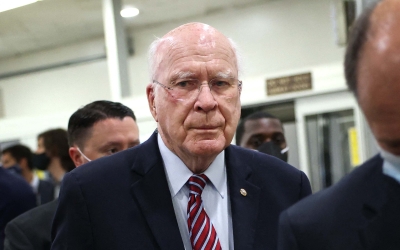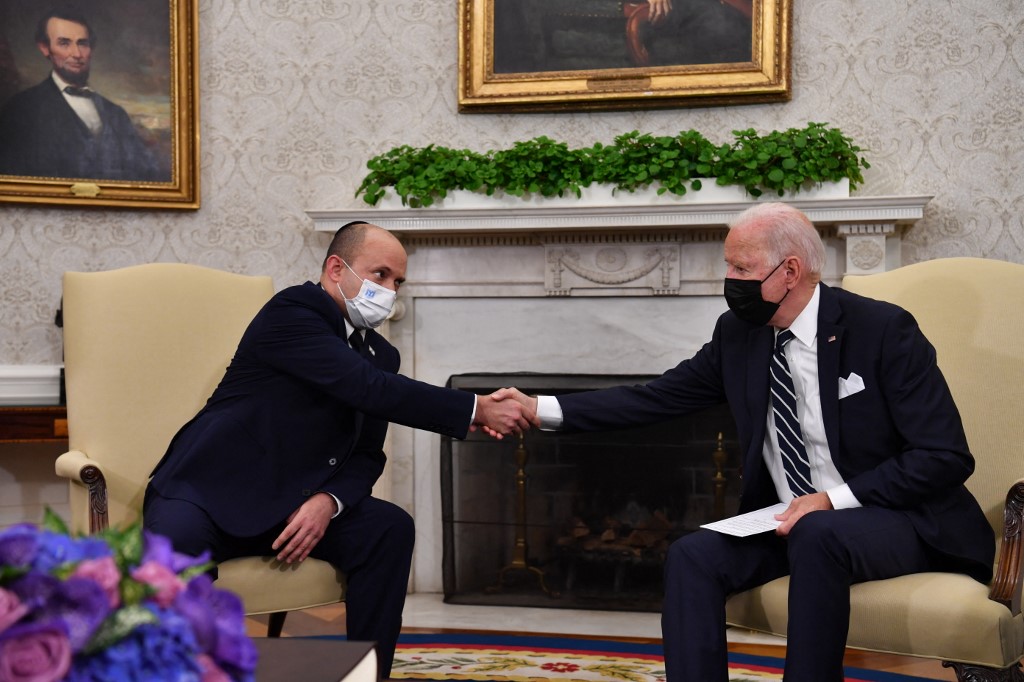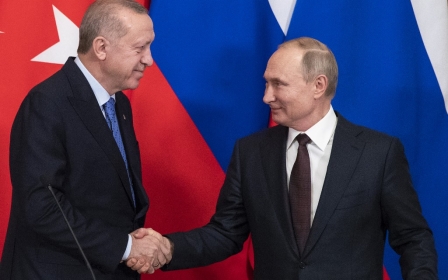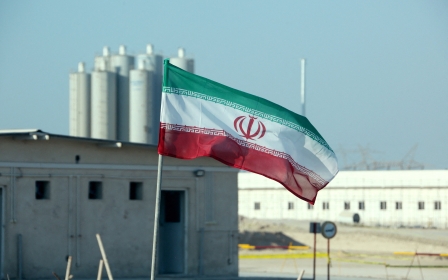Joe Biden pledges diplomacy over military might. But can he deliver?
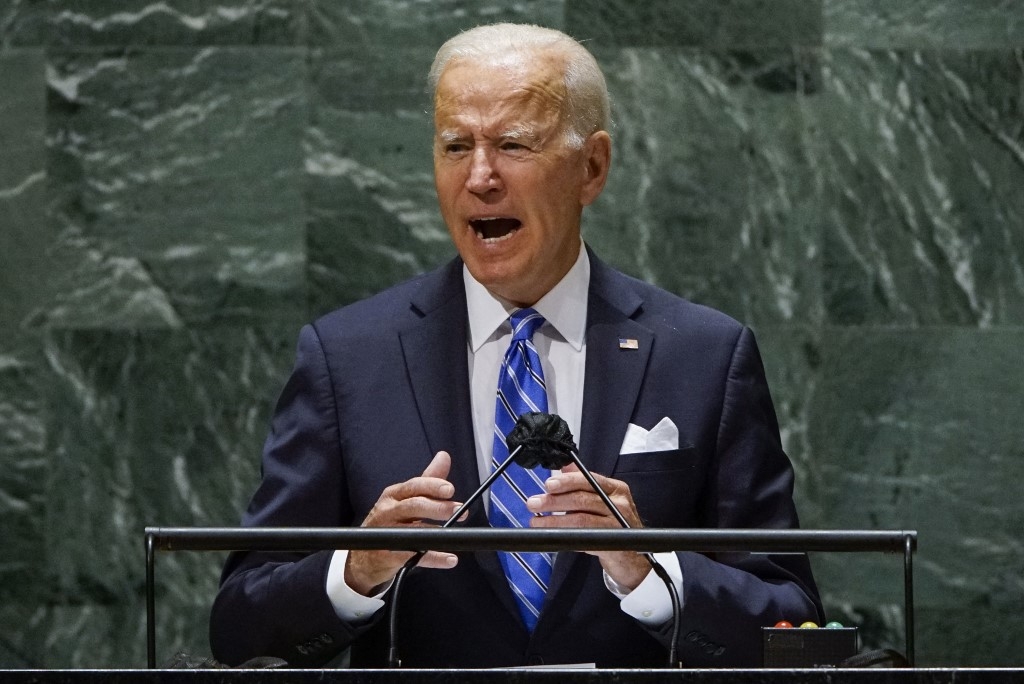
At the tender age of 78, US President Joe Biden has committed himself to two Herculean tasks: to change how the US is ruled; and to change how it acts and is perceived abroad. It will be no surprise if either project crashes and burns.
In the nine months of his presidency, he has challenged four of the US's most powerful lobbies - Big Oil, Big Tech, Big Pharma and, with his resolute withdrawal from Afghanistan, also the military.
Essentially, in the words of US Congressman Ro Khanna, Biden is attempting “the biggest public social investment” since President Lyndon Johnson's Great Society of the 1960s, “in a clear rejection of the neoliberalism of the Reagan and Thatcher years”.
In the nine months of his presidency, he has challenged four powerful US lobbies - Big Oil, Big Tech, Big Pharma and the military
Biden seems committed to improving the lives of all Americans by acting determinedly to end the pandemic, fix the country’s decaying infrastructure, promote the transition towards a green economy to better tackling climate change, and getting an unprecedented safety net plan approved.
The challenge is having Congress pass a $1.2tn infrastructure bill and a $3.5tn safety net, which Biden is now considering shrinking, and climate change bill - the latter financed by taxing the wealthy. He is struggling against the opposition of the Republican Party to the second so-called budget reconciliation bill, and the left of his own Democratic Party, which is linking the votes on both the bills. There will be no infrastructure bill without the safety net.
New MEE newsletter: Jerusalem Dispatch
Sign up to get the latest insights and analysis on Israel-Palestine, alongside Turkey Unpacked and other MEE newsletters
Rising tensions
It is a huge task amid the brewing perfect storms threatening the US economy, with rising tensions about inflation and stagflation, warnings about debt sustainability, and another possible US federal government shutdown.
However, it is what Biden is trying to accomplish globally which is far more significant. The speech he delivered on 21 September at the 76th General Assembly of the United Nations offered a clear sense of it. In New York, the president struck all the right chords using the usual semantics.
He solemnly emphasised that humanity’s future hinges on its ability to act collectively, claiming that this decade would be the decisive one for the world and its future. He asserted that we were at a turning point in history and that instead of continuing to fight the wars of the past, resources should be devoted to the challenges of the future: ending the pandemic, addressing the climate crisis, managing the shifts in global power dynamics, shaping the rules of the world on vital issues like trade, cyber and emerging technologies.
To mark this shift, he then claimed to have ended 20 years of conflict in Afghanistan and more generally the era of the US's endless wars.
He also claimed that rebuilding America’s alliances and partnerships was essential and central to its enduring security and prosperity. He outlined the multilateral frameworks within which such US policy would be implemented: Nato; the European Union; the newly arrived Quad (US, Australia, India, and Japan) and the Association of Southeast Asian Nations (Asean) - to focus on the rising importance of the Indo-Pacific; the African Union; and the Organization of American States (OAS).
He said America was also re-engaging with the UN and the World Health Organisation, rejoining the Paris Climate Agreement and even running to retake a seat on the UN’s Human Rights Council.
All in all, the president seems to have finally grasped that America will be far more credible and inspiring if it "leads not merely by the example of our power but by the power of our example".
Biden also emphasised that in defending itself, its allies and its interests, “US military power must be our tool of last resort, not our first, and it should not be used as an answer to every problem we see around the world."
In a nutshell, a foreign policy manifesto that appears light years away from America’s militarist policy of the last few decades.
Questions
That’s the theory. Now we come to the difficult bit: its implementation in practice. A few questions deserve to be considered.
Biden said that he intends “to uphold the longstanding rules and norms that have formed the guardrails of international engagement for decades that have been essential to the development of nations around the world”. Will these rules and norms always be the same and, above all, be determined exclusively by the United States as has occurred so far? Or they will be conceived multilaterally?
Biden has promised to “oppose attempts by stronger countries to dominate weaker ones, whether through changes to territory by force, economic coercion, technological exploitation or disinformation”. Will he also do so when such despicable actions are performed by America’s allies and friends?
The US president pointed out that “there is an enormous need for infrastructure in developing countries, but infrastructure that is low-quality or that feeds corruption or exacerbates environmental degradation may only end up contributing to greater challenges for countries over time”. The reference to China and its Belt and Road Initiative here is clear. Does Biden mean that the only infrastructure projects worthy of consideration are western ones?
Taking for granted the US's unequivocal support for Israel, and taking Biden at his own words (that he will “continue to believe that a two-state solution is the best way to ensure ... Israel’s future as a Jewish, democratic state living in peace alongside a viable, sovereign and democratic Palestinian state”), will he act resolutely to stop the Israeli policies that have so far made such a vision unrealisable?
The president reiterated the commitment to prevent Iran from gaining a nuclear weapon and said that the US was prepared to return to full compliance if Iran did the same. Does he grasp that, as America withdrew unilaterally from the JCPOA, it must make the first move by rejoining the deal without conditions and lifting sanctions?
Double standards
Biden rightly claimed that “the authoritarianism of the world may seek to proclaim the end of the age of democracy, but they’re wrong”. He then proudly added that democracy “lives in the anti-corruption activists, the human rights defenders, the journalists, the peaceful protesters on the frontlines of this struggle in Belarus, Burma, Syria, Cuba, Venezuela and everywhere in between”.
Did he consider that his plea would have sounded more credible if countries such as Tunisia, Egypt, Saudi Arabia and the Philippines had been added to his list? Did he realise that such double standards do not fit well into his claimed commitment “to lead not just with the example of our power but with the power of our example”?
US attempts to project power in the Middle East and Central Asia have failed. The path on which Biden is now set is much more complicated
In his dealings with China, the US president has so far acted like a homeowner concerned for a blaze threatening his property who asks for his neighbour’s help and, while they extinguish the fire together, criticises and blames him.
Does the president believe that it is sound policy to demand China's cooperation against common threats such as the pandemic and climate change and then, at the same time, cornering it on issues such as Taiwan, Hong Kong and Xinjiang, expecting no reaction from the Chinese leadership?
To his credit, in his UN speech, the US president honestly recognised that “no democracy is perfect, including the United States”.
These questions deserve an honest answer. Providing them would go some way to restoring America's reputation as a world leader.
America's attempts to project power in the Middle East and Central Asia have failed. The path on which Biden is now set is much more complicated. It involves negotiation and listening. For America, this is much harder.
The views expressed in this article belong to the author and do not necessarily reflect the editorial policy of Middle East Eye.
Middle East Eye delivers independent and unrivalled coverage and analysis of the Middle East, North Africa and beyond. To learn more about republishing this content and the associated fees, please fill out this form. More about MEE can be found here.



